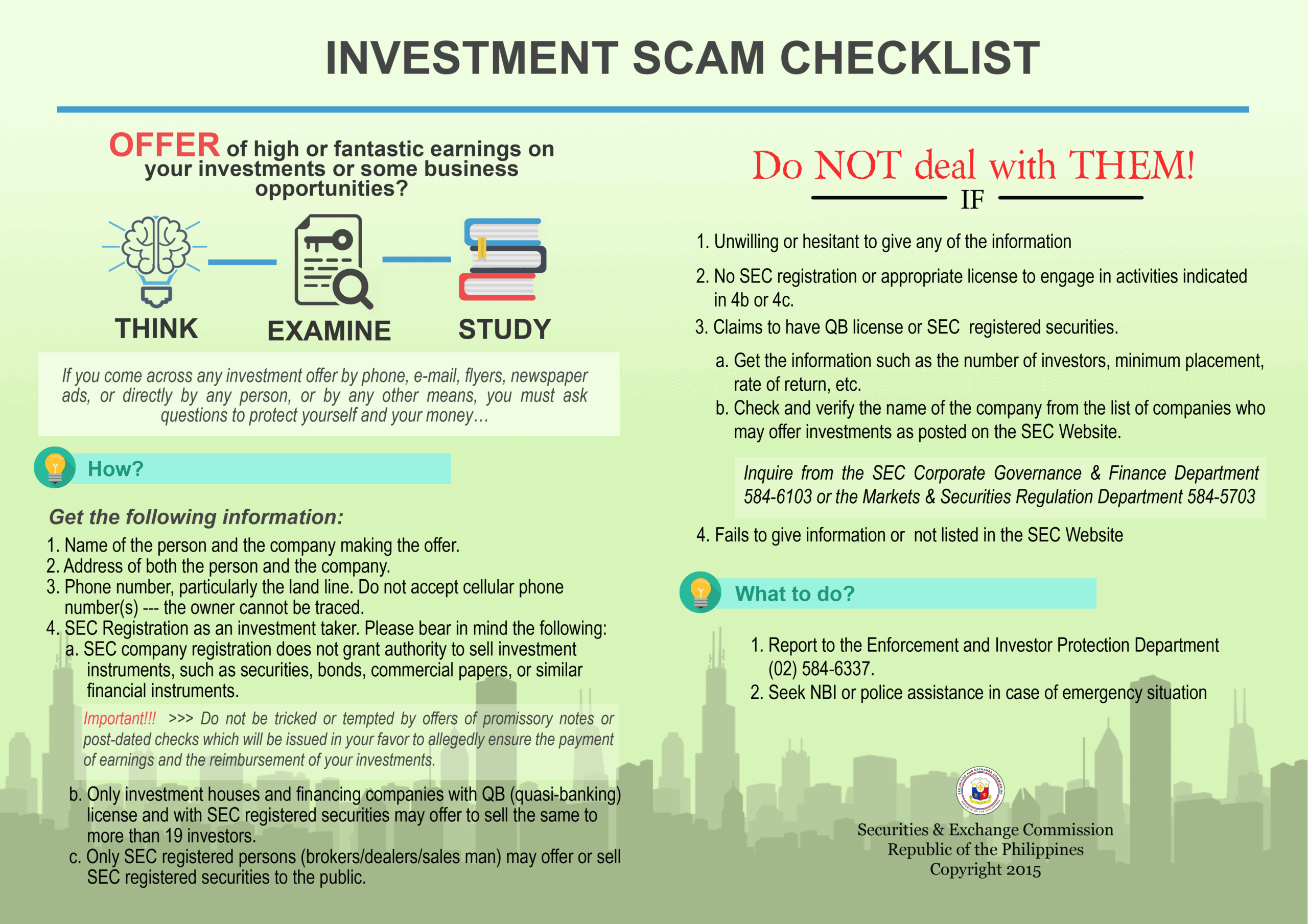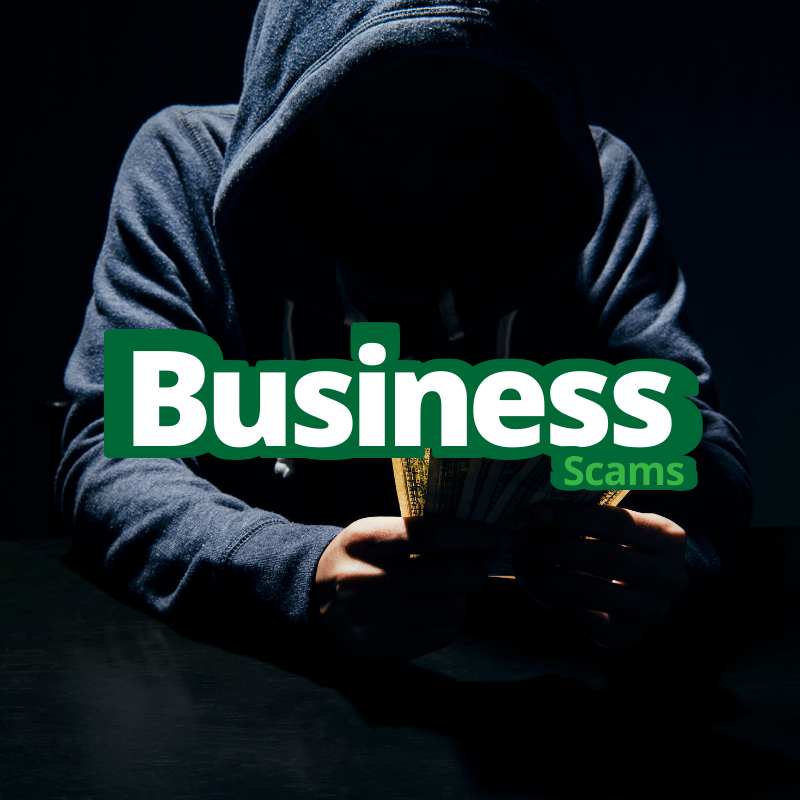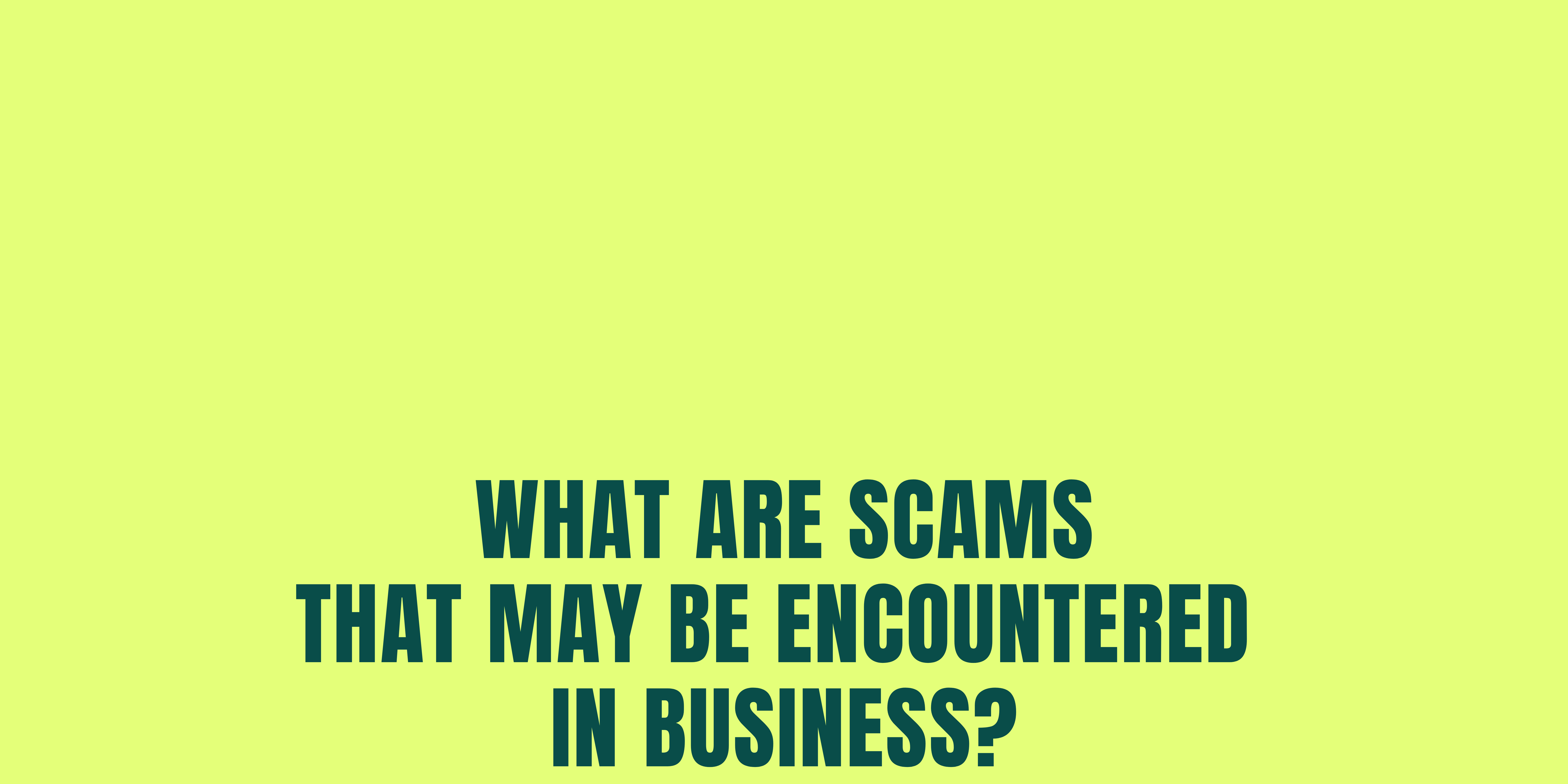No products in the cart.
Financial, Gen X, Gen Z, Millennial
7 Common Business Scams You Must Avoid in 2025!
GET TO KNOW POSSIBLE SCAMS THAT YOU MAY ENCOUNTER
A scam is a fraudulent scheme designed to deceive individuals or businesses out of money or valuables. While many scams target consumers, businesses are also at risk, regardless of their size. Losses can range from small amounts to millions. Understanding vulnerabilities and recognizing scams can help prevent financial damage.
Mins to Read: 10 to 13 minutes
Age Bracket: 20 – 40 years old
Common Tactics Scammers Use
Scammers often use persuasive strategies similar to those of skilled salespeople. They may associate their offers with a charitable cause, a school, or a social initiative, making businesses more likely to engage. These fraudulent schemes exploit goodwill to appear legitimate.

Telemarketing Scams

Telemarketing Scams
Telemarketing is a common tool for fraud. Since phone calls leave no record, scammers can mislead victims into believing an agreement has been made.
- Avoid verbal agreements over the phone if you are unsure about the publisher or offer.
- Insist on written confirmation and full terms and conditions before making any commitments.
- Keep a record of suspicious calls, including date, time, caller’s name, and conversation details.
- If a caller refuses to provide identification details, acts aggressively, or transfers you to another person unexpectedly, terminate the call.
- Consider registering with the Corporate Telephone Preference Service to reduce unwanted calls.
- Saying “No thank you” and hanging up is often the safest approach.
Advance Fee Scam

Advance Fee Scams
Advance-fee fraud takes many forms, but the core tactic remains the same: victims are promised a large financial reward in exchange for paying small upfront fees. These costs, disguised as taxes or legal fees, gradually increase until the victim either realizes the scam or runs out of money.
- Scammers pose as high-ranking officials, lawyers, or businesspersons.
- They promise huge returns for minor upfront payments.
- Victims are asked for identification details or banking information.
- Engaging once can lead to repeated targeting as fraudsters share victim details.
- Verify identities by contacting organizations through official sources, not those provided in the scam message.
- Never send upfront payments via wire transfer, digital currency, or preloaded cards, as recovery is nearly impossible.
Unnecessary Service Scam

Unnecessary Service Scams
These scams require businesses to pay upfront fees for unnecessary services, often under the guise of legal or regulatory requirements.
- Some scammers impersonate government agencies, citing fines and regulations.
- They create fake official websites to trick businesses into paying for unnecessary services.
- Always verify the legitimacy of registration requirements directly with government authorities.
- Be wary of unsolicited emails or letters requesting immediate payment.
Investment Scam

Successful business owners are the target of several scams since it is assumed that they may have big salaries or access to investment resources. Private investors thought to have extra money are also the target of these scams.
Investment fraud is frequently promoted through call centers called “boiler rooms.” They use the promise of spectacular investment returns to entice people to invest in high-risk ventures. Shares in tiny, high-growth businesses, premium wine and art, precious metals and gemstones, speculative land investment and forestry, carbon credits, and energy investments are a few examples of possible investments. In some cases, real investments exist, but the investor is not fully informed of the dangers; in other instances, the investment does not exist.
Although businesspeople frequently assume that they would recognize and avoid such fraud, the victims of these schemes often had prosperous and well-respected careers as top managers, professionals, or business owners. Here is a checklist and things you need to know when you encounter an investment scam:

Sales Associate Scam

To force a rapid decision before the victim has had a chance to consider it, con artists may make it seem like their offer is limited—either in quantity or in time. While providing the final spot in a newspaper or even that they are attempting to fill a void left by cancellation before a print deadline, a con artist may make one of these claims when selling advertising space. A hasty choice will almost certainly be made when a busy business is in this situation.
If an offer is sincere, no stiff or tight deadline will prevent you from taking some time to think things over before committing.
Lottery/Winner Scam

Everyone has a fantasy of winning the lottery, a contest, or a pleasant gift like an iPad, and con artists are aware of this. They make use of it in a number of schemes meant to steal consumers’ money and private information. Similar to romance scams, supply chain scams, and other financial scams, these traps take advantage of psychological weaknesses by using social engineering. Despite how much your spider sense may be tingling at potential peril, you want it to be true if you’re informed you’ve just won a sizable sum of money.
The nation is full of lottery scams, whether in the form of phone calls or text messages. These con artists will pretend that you have won the lottery and must transfer money to receive your winnings. You will, of course, never win that award. The oldest technique in the book still works today.
Never respond to communications claiming you’ve won something if they look to be from lotteries or sweepstakes. These communications are almost invariably false.
OFW who have experienced a scam in the Philippines

An overseas Filipino worker (OFW) lost more than P1 million due to an online scam run by a purported “sorceress.” The latter tempt victims into purchasing materials used by fictitious healers and fortune tellers.
Victim Faye (not her real name) said in a story on GMA’s “24 Oras” that she had spent more than P1 million for more than a year on products offered by the “sorceress” who runs an internet business.
In case raw po sa kulam, gayuma… Masakit po sa masakit… ‘Yung yung sinasabi niya kasi nga may protection. I was wounded. never suspected the merchant to be a scammer. I believed her and everything. They were even threatening me. “Natiwala ka and everything tapos ikaw pa ‘yung… Nanakot pa po sila (She told me it is for my protection… from spells.
Elvie (not her real name), a different victim, claimed she spent about P60,000 on stuff, including stones, amulets, potions, and dolls. Elvie was duped into purchasing anything from the suspect after the latter promised to ease her family’s problems.
“Nahulog lang ako because, according to her, all charms and rituals should be successful, she said. As she spoke, she said, “Hanggang sa na ano ko na lang naubos na yung pera ko sa tatlong bangko ko naipon.
According to the National Bureau of Investigation (NBI), the internet vendors who mistreated Elvie and Faye pretended to be “sorceresses” to sell their goods. Currently, they are looking into it.
MUST-READ AND SHARE!
2023 Your Practical Wedding Guide
Your Ultimate Access to Kuwait Directories in this COVID-19 Crisis
Investments and Finance Ultimate Guide
OFW FINANCE – Money News Update that you need to read (Table of Contents)
A Devotional for having a Grateful Heart
Stock Investment A Beginner’s Guide
How To Save Money Amidst Inflation
Philippines Best Banks with High-Yield Savings Return
Essentials Before Applying For a Credit Card
Credit Card Starter Guide for Beginners
If you like this article please share and love my page DIARYNIGRACIA PAGE Questions, suggestions send me at diarynigracia @ gmail (dot) com
You may also follow my Instagram account featuring microliterature #microlit. For more of my artworks, visit DIARYNIGRACIA INSTAGRAM

 FREE DOWNLOAD NOW!!!
FREE DOWNLOAD NOW!!!

Peace and love to you.